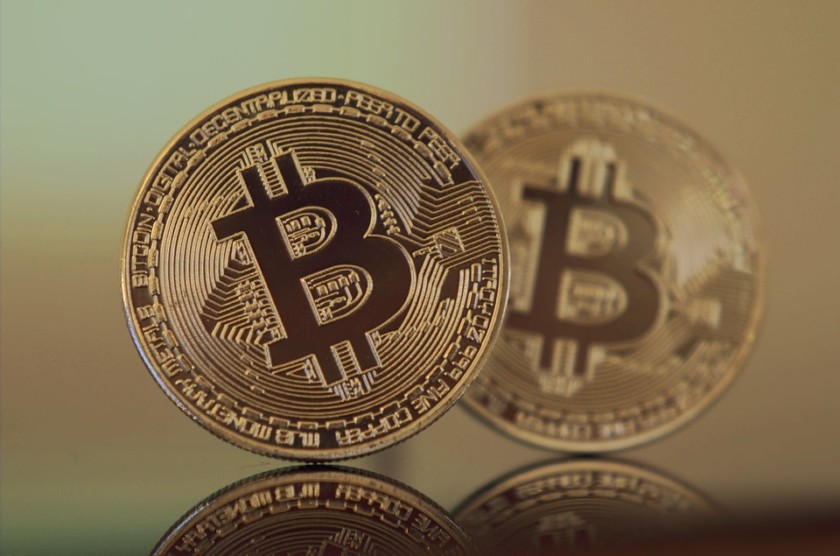Cryptocurrencies, and particularly Bitcoin, are a hot topic. Its popularity has led to volatile prices, a wave of new and copycat entries into the market, and companies like Kodak switching business models to rent out Bitcoin mining equipment. Make what you will of this wave of enthusiasm for digital currencies, but their surging popularity is now also drawing scrutiny from governments and major tech advertising companies like Facebook. A crackdown seems imminent, which might put a lid on the cryptocurrency craze.
Most recently, Facebook Product Management Director Rob Leathern announced the social media platform is banning ads for cryptocurrencies and associated promotional materials. The company says it is targeting "financial products and services frequently associated with misleading or deceptive promotional practices." It's a deliberately broad blanket ban on dubious products related to financial services, including cryptocurrencies, designed to protect Facebook users from potential scams.
Facebook has implemented a deliberately broad ban on dubious products related to financial services, including cryptocurrencies
Facebook's ban explored
The ban means advertising a variety of financial products potentially associated with deceptive practices is now prohibited on Facebook. This includes Bitcoin and other cryptocurrencies, and their initial coin offerings (ICOs), as well as broader financial services like binary options. The policy extends to other platforms under the Facebook umbrella like Instagram too. The company says the rule is intentionally broad so that it can detect and catch misleading advertising practices and leave the door open for future revision.
Misleading ads have no place on Facebook: just launched a new policy to prohibit ads promoting financial products & services frequently associated with misleading/deceptive promotional practices, (e.g. binary options, initial coin offerings, or cryptocurrency) .. 1/2
— Rob Leathern
(@robleathern) January 30, 2018
Facebook users, as well as those browsing other media sites, have likely encountered advertisements for services promising low-risk-high-reward financial opportunities, cryptocurrency investment "advice," and other tedious messages from shameless self-publicists claiming to have untold insights into the whole system. All of the above have the potential to do harm and at the very least they're a blight on advertising quality in general.
The ban on ICO ads is particularly important, as this is the area in which some of the largest cryptocurrency scams have taken place. Outright fake or overinflated fundraising ICOs promising big gains for minimal risk are designed simply to separate unwitting investors from their money. PlexCoin is perhaps the most well documented example, which fleeced $15 million from investors and recently saw head of the company Dominic Lacroix sentenced to two months in prison. Numerous other fraudulent ICOs have been spotted, including one flaunting a fake association with Ethereum founder Vitalik Buterin.
Facebook isn't the only major technology company taking action against potential exploitation. Google is looking to clamp down on advertisers using its DoubleClick ad service to run cryptocurrency mining malware on devices across Europe and Asia, examples of which have even been spotted in YouTube ads. The company hasn't instigated a sweeping Facebook-style ban on cryptocurrencies, instead adopting specific policies to find abusive advertisements related to the mining phenomenon.

Mounting government pressure
It shouldn't be surprising to hear that governments around the world are also trying to figure out how to deal with cryptocurrencies. Enthusiasts may extol the virtues of freedom from government-controlled fiat currency, but there's an increasingly compelling case for regulation of ICOs and, perhaps more importantly, trading exchanges.
The U.S. Commodity Futures Trading Commission recently subpoenaed one of the world's largest cryptocurrency exchanges Bitfinex and Tether, who share the same CEO. Tether controversially issues crypto-tokens known as USD Tethers (USDTs) for trading, which are supposedly backed by an equal number of reserve U.S. dollars. USDTs can be traded directly for Bitcoin at the Bitfinex exchange and they have allegedly been used to inflate Bitcoin prices. The Commodity Futures Trading Commission is reportedly investigating whether Tether can actually back its USDTs, or if the company has essentially been fabricating cash out of thin air, which would be illegal.
Clearly there's a place for government agencies and regulation to reign in this type of exploitation. In fact, it may even be necessary if Bitcoin and other currencies are to survive as viable and trustworthy means of exchange or commodities.
The scope of potential government oversight is perhaps most observable in South Korea, a country with arguably the biggest public interest in cryptocurrencies. The country is the third largest Bitcoin market. Data suggest a third of South Korea's workers have invested in at least one such currency, and one of its malls is preparing to be the first to accept 12 different digital currencies across all of its stores. The country has even coined the phrase "bitcoin zombie" for those obsessed with prices around the clock.
The technology's prevalence in South Korea has caused the government to take a particularly keen interest in regulating the market. The country is now clamping down on potentially fraudulent and illicit activities in this space to prevent market manipulation. Officially, South Korea's finance minister stated the government has no plans to shut down the trading of cryptocurrencies in the country. However, measures implemented so far include banning anonymous trading accounts, preventing foreigners and minors from trading, outlawing ICOs, and placing additional restrictions on advertisements.
There's an increasingly compelling case for regulation of ICOs and, perhaps more importantly, trading exchanges, to prevent manipulation.
China has gone much further, already shutting down virtual coin platforms trading in Bitcoin, blocking ICOs, and clamping down on miners too. China is particularly worried about issues like capital flight, money laundering, and threats to sovereignty and state control. India too is showing increasing scepticism towards these currencies. Finance Minister Arun Jaitley just told lawmakers that "the government does not consider cryptocurrencies legal tender or coin and will take all measures to eliminate use of these crypto-assets in financing illegitimate activities or as part of the payment system."
As products like Bitcoin continue to permeate public consciousness, many other governments may end up taking stances along the lines of South Korea, and perhaps even China, to grapple with the risks of what is essentially little more than speculative investment.
End of the road for cryptocurrencies?
There are some major problems surrounding the explosive growth and popularity of cryptocurrencies — it's not just the wildly fluctuating price. Between fraud and regular hacking attempts, opportunistic and predatory advertising, and potential price manipulation, there are plenty of very good reasons to be skeptical about cryptocurrencies. What if the bubble pops?
Cryptocurrencies, in their current form, may well be hit hard by increasing government scrutiny, but that presents an opportunity for the market to mature.
The threat of hardline government stances on cryptocurrency certainly has the potential to stamp out its unfettered growth. Recent developments have already prompted investor hesitation. However, it's perhaps pragmatic to realize the free-for-all nature enjoyed by some so far probably needs to end for these currencies to mature into usable and useful tools, rather than speculative rollercoaster rides. The massive peaks and troughs of Bitcoin value hardly make for a stable regular currency.
The approaches taken by Facebook and official regulators are probably just the start of the normalization of cryptocurrency in public life. That said, even in the most extreme clampdown it's unlikely that cryptocurrency can ever be put back in the box. Outlawing cryptocurrencies would just drive them underground, much like what happened with the file-sharing revolution — just look at PirateBay, Megaupload or Napster.
However, if regulators uncover major manipulation of any kind, confidence in Bitcoin and other currencies could be shaken to the point of a complete price collapse, much like the dot-com and real estate bubbles of the past. Either way, cryptocurrencies won't stay the same hot commodity they are now, but the blockchain currency journey certainly isn't over yet.
from Android Authority http://ift.tt/2Eugiei
via IFTTT




Aucun commentaire:
Enregistrer un commentaire